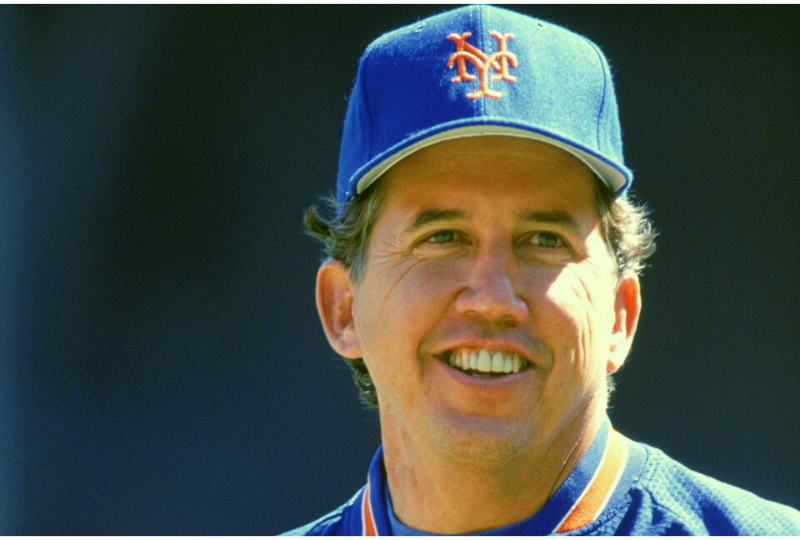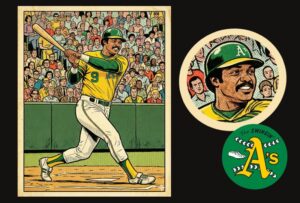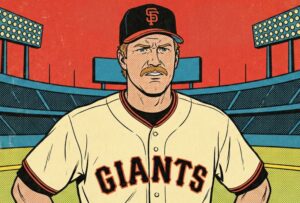Sometime later this month, the Washington Nationals will win their 90th game, and they are almost assured of finishing either first or second in the tough National League East. But their manager knows a lot about facing stiff competition in that division, and the Nats’ success only adds to his impressive résumé.
Davey Johnson knows a lot about being a winner because he’s done it a lot. Winning practically flows through his veins.
In 1966 as a rookie second baseman with the Baltimore Orioles, Johnson won the World Series. He started for three more pennant-winning teams with Baltimore, and in his seven seasons as their second baseman, the team finished in first four times and second once. After he was traded to Atlanta the team improved from a losing record and 5th place finish his first season to a winning record and 3rd place in his second year with the Braves. He then played for two more first place teams with the Phillies before winding out his career. In 11 seasons as a regular player his teams finished in first place six times.
He took that winning attitude with him to the dugout as a manager. he had a successful minor league managerial career and bolted to the majors as skipper of the New York Mets in 1984. There he managed many of the young players he’d had in the minors and the team won 90 games or more in five consecutive seasons. Under Johnson, the Mets won the 1986 World Series and also won the NL East in 1988. In six full seasons at the helm of the Mets, his team finished first or second every year. They were even in 2nd place in 1990 when he was fired.
A few years later, Johnson was back in uniform with the Cincinnati Reds, where he guided that team on a resurgence. He guided the Reds to consecutive AL Central division titles in 1994 and 1995, taking the club to the NL Championship Series the latter season. But he was not res-signed after that season and moved on to Baltimore, returning to wear his career started. With the O’s he managed a veteran team to playoff spots in each of his two seasons, advancing to the ALCS each year only to lose to the New York Yankees and Cleveland Indians. But his relationship with owner Peter Angelos was frosty and he was fired after the ’97 season when he became embroiled in a power struggle with Angelos over sanctioning a player. Ironically, Johnson was fired on the same day he was named AL Manager of the Year.
After a year off, Johnson was hired to manage the Los Angeles Dodgers, returning him to the National League. In his first season in LA the team struggled, coming in third place, the first time a Johnson-led team had finished below second in a season he managed the whole year. The next year he pushed the Dodgers to a second place finish but found himself out of a job again when his contract was not renewed. The Dodgers became the fourth franchise for which Johnson posted a winning record as manager.
After several years out of major league baseball, Johnson found himself back in the game in the front office with the Nationals in 2006. In 2011, when Jim Riggleman suddenly resigned, Johnson moved to the field to take over the managerial duties. Now, in his first full season as Nats’ skipper, he has a young team in first place in September. Not unfamiliar territory for Johnson, who has won or come close in almost every season he’s ever played or managed in.
As Johnson continues to add to his record he starts to make a case for the Hall of Fame as a manager. He has posted winning records with five different franchises. If the Nats make the playoffs, he will have taken four different teams to the post-season. He’s won Manager of the Year twice and won 100 games twice. In his 13 full seasons he will have finished first or second 12 times and had a winning record in 12 of them. He will have won 90 games or more seven times (and that doesn’t include two years shortened by strikes where his teams were on pace to win well above 90). No other manager in history has brought four different franchises to the playoffs.
In his managerial career he’s won 56% of his games, a rate that ranks in 10th all-time among managers with at least 1,000 victories. His winning percentage is higher than that of Hall of Fame managers Walter Alston, Sparky Anderson, and Tommy Lasorda. It’s higher than that of Bobby Cox.
Johnson has worn out his welcome in a few of his stops, but he’s done the one thing manager’s are hired to do above all else – win.
That’s something Davey Johnson seems to do out of habit.







